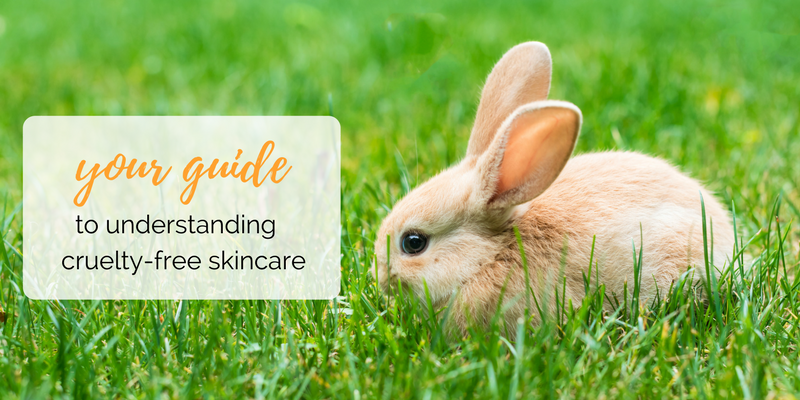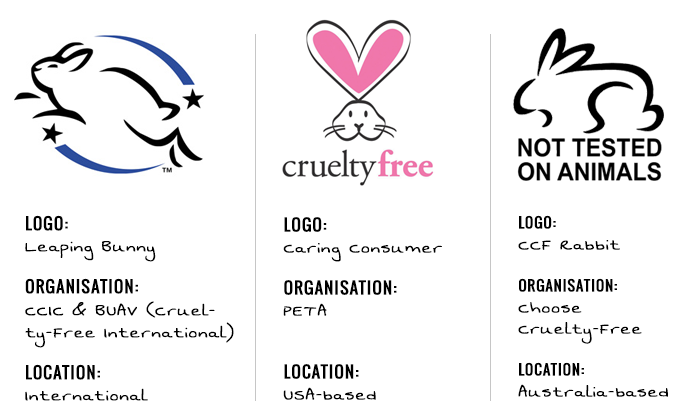

By Chantalle Duffin
If you are just as obsessed with beauty products like we are, you may have a few requirements in mind when you are shopping around for the latest and greatest products to add to your bathroom cabinet – does it fit within a certain price range? Is it made with certain ingredients? Or how functional is its packaging? But how often do you consider the impact that this product leaves behind on the environment and it’s inhabitants? For an industry that bases itself on looking and feeling good, the impact that the beauty industry has on the environment is surprisingly quite negative.
Not only does cosmetic and skincare packaging contribute to huge amounts of waste being produced each day, but it is also responsible for a large chunk of animal testing that happens behind closed doors. In the United States alone, more than 100 million animals are tortured and killed each year for animal testing, but by choosing products that are cruelty-free you can help put an end to this practice. However, the term ‘cruelty-free’ is a buzzword that is thrown around quite often in the industry and can found on the labels of so many products on your store shelves, but how many of us actually understand what it really means to be a cruelty-free brand?
So what does Cruelty-Free mean?
A few decades back, it was incredibly common place for cosmetic companies to test their products on animals. This was done to determine the safety of using certain ingredients and finished products on humans before being put on the market. Fast-forward a few years and consumers are now demanding change, awareness, and a push for more brands that don’t test on animals at any stage in the production of their products.
Generally speaking, if a brand does not test on animals at any point during a product’s creation, it is considered cruelty-free. This is still a very generalised definition and it is quite tricky to determine which brands are true to their claims and are actually cruelty-free unless you know what you are looking for.
What about vegan skincare?
It is important to note that cruelty-free doesn’t necessarily mean that the products don’t contain animal products. Cosmetics and skincare that contain ingredients like gelatin, beeswax, honey or lanolin can still be labelled cruelty-free. Products that don’t use ingredients that are produced by animals are labelled as vegan products.
Our RosehipPLUS products are not only cruelty-free but also vegan. The RosehipPLUS range does not contain any products produced by animals, nor do we test our ingredients or finished products on animals. We make this statement clear to our customers through the labels and logos that we have on all our products.
Understanding the logos
The entire RosehipPLUS range is recognised as cruelty-free and vegan by PETA. PETA (People for the Ethical Treatment of Animals) focuses on advocating to stop the abuse of animals in various industries, including animal testing. All of our products carry the PETA logo like the two shown below.

When products like our RosehipPLUS range carry the PETA bunny logo, you can trust that these products have not been tested on animals at any stage of their production. While PETA is one of the most recognised and trusted organisations, there are also more logos that you can look out for the guarantee that the product is not tested on animals and is cruelty-free. This includes the Leaping Bunny Logo and the Choose Cruelty Free Rabbit Logo also shown below. Any products that carry any of these 3 logos have been verified by the relevant organisations that their brand practices are cruelty-free. When you see one of these three bunny logos, you know that you’re looking at a cosmetic that’s publicly stated their standing against animal testing.
Any product that doesn’t carry 1 of these 3 logos and claims to be cruelty-free or don’t test on animals may require further investigation by consumers. This is because many governments provide very little guidance for labelling. In fact, most manufacturers are given the responsibility for defining the meaning of their labels on their packaging themselves. However in the same respect, many companies, while not being certified, can be cruelty-free. If you are concerned about the cruelty-free status about certain brands always do your own research and investigation before purchasing!
Another very important thing to note is that in 2013, Europe banned animal testing on all cosmetics manufactured and sold in the region, some states in the U.S. and even Australia have shown notions to move in this direction as well. On the other hand, all cosmetic companies that sell in China are required to test on animals in accordance with China’s laws. So when in doubt, always try and do your own investigation and research where possible.
You can find us listed under PETA’s Beauty Without Bunnies campaign under their listing of cruelty-free brands under our parent company The Rosehip Specialists here.
What are your thoughts on cruelty-free cosmetics? Let us know down below in the comments.
« Previous post |

Follow Us On Instagram
No images found!Try some other hashtag or username



